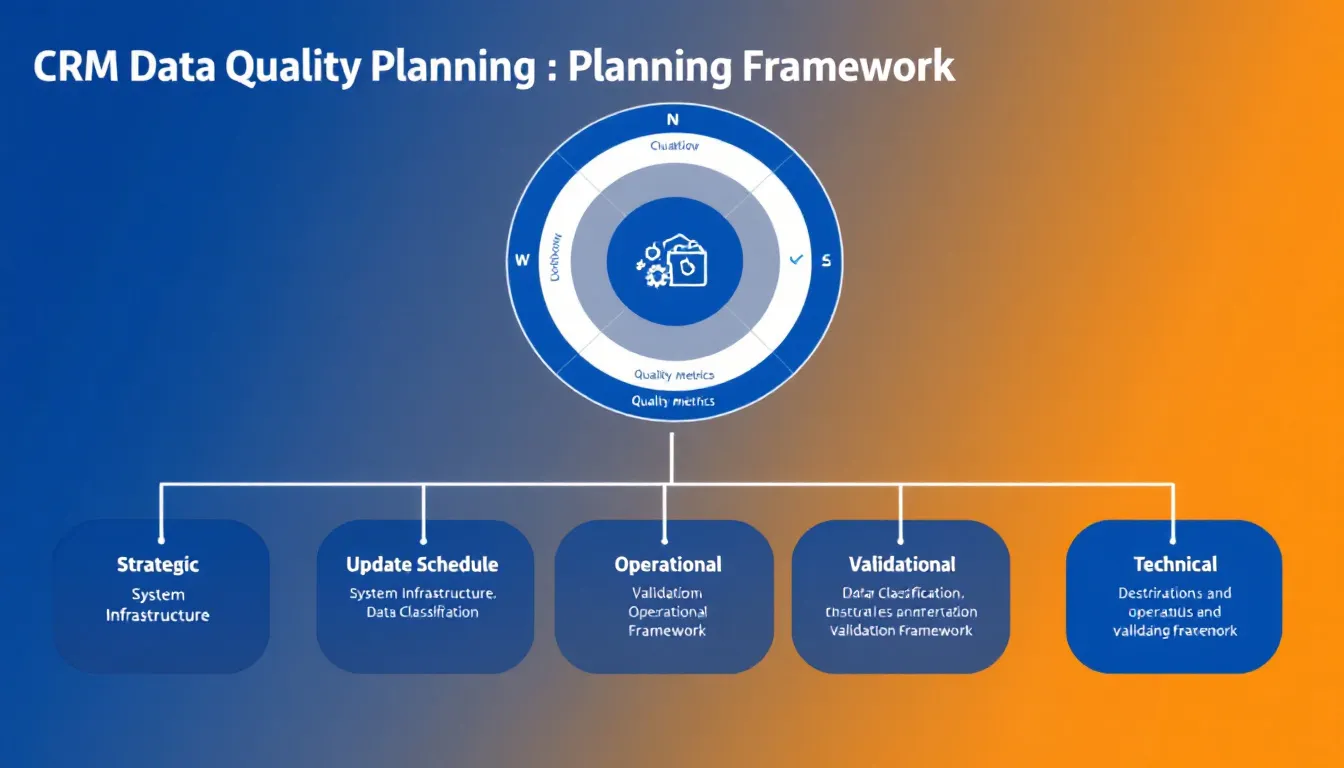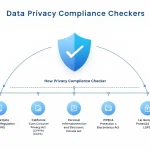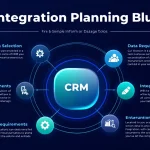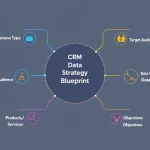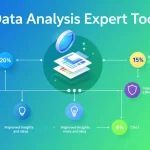Is this tool helpful?
How to Use the CRM Data Quality Planning Tool Effectively
To get the most from the CRM Data Quality Planning Tool, carefully complete each section with accurate and relevant information. Below are detailed instructions and example inputs for each field to guide you.
1. CRM System Field
Enter the CRM platform you currently use or plan to implement. This helps tailor your data quality plan to your system’s capabilities.
- Microsoft Dynamics 365 Sales
- Oracle CX Cloud
2. Key Data Types Field
List the main categories of customer data you want to track and ensure quality for. This clarifies the focus areas for data management activities.
- Subscription details, payment statuses, product feedback, customer support chats
- Referral channels, customer lifetime value, onboarding steps, user behavior metrics
3. Quality Metrics Field
Define the metrics that measure the accuracy, completeness, and consistency of your data.
- Percentage of verified contact details, data entry error rates, record update latency
- Customer profile accuracy score, duplication rate per 1,000 records
4. Update Frequency Field
Specify how often your data quality metrics should be reviewed or updated to maintain accuracy.
- Weekly reviews for sales leads data
- Monthly audits for customer feedback records
5. Validation Rules Field
Describe the rules or standards used to verify your data integrity.
- Phone number format standardization, postal code verification by region
- Mandatory consent checkbox for marketing communications, valid date range checks
Introduction to the CRM Data Quality Planning Tool
The CRM Data Quality Planning Tool helps you develop a clear, actionable strategy to maintain accurate and reliable customer data within your CRM system. It supports you in setting measurable goals, defining validation methods, and scheduling regular data reviews.
By using this tool, you improve your CRM data’s trustworthiness, enabling better customer insights, more informed business decisions, and smoother operations.
Purpose of the CRM Data Quality Planning Tool
- Identify key CRM data elements that need monitoring and quality controls
- Outline specific quality metrics and validation techniques tailored to your organization
- Set a schedule for monitoring and updating data for ongoing accuracy
Key Benefits You Receive
- Consistent, error-free customer data that enhances customer engagement
- Reduced risk of poor decision-making caused by inaccurate data
- Efficiency gains from automated quality controls and standardized validation rules
- Stronger compliance with data governance and privacy requirements
Practical Applications of the CRM Data Quality Planning Tool
This tool applies to diverse business contexts by providing a structured approach to data quality planning. Below are examples of how teams use it to improve CRM data management.
Example 1: SaaS Provider Customer Success Team
- CRM System: Zendesk Sell with custom fields for subscription data
- Key Data Types: User login history, feature usage statistics, customer feedback notes
- Quality Metrics: 95% completeness of customer profiles, monthly data accuracy checks
- Validation Rules: Email domain verification, opt-in status checks for newsletters
Example 2: Retail Chain Marketing Department
- CRM System: SAP Customer Data Cloud
- Key Data Types: Purchase histories, loyalty program enrollments, demographic data
- Quality Metrics: Less than 2% duplication rate, weekly update frequency for campaign responses
- Validation Rules: Standardized address formatting, mandatory opt-out fields for compliance
Understanding the Core Components of CRM Data Quality Planning
Your data quality plan focuses on essential areas that ensure your CRM data remains accurate, complete, and actionable:
System Infrastructure Alignment
Tailor your data quality strategy based on your CRM platform’s features and limitations to ensure seamless integration and management.
Data Type Classification
Clearly categorize the data you collect to prioritize quality efforts effectively.
Quality Metric Definition
Choose metrics that directly reflect data accuracy, completeness, and consistency relevant to your business needs.
Update Schedule Optimization
Define how often you review and refresh your data to keep it accurate and fresh.
Validation Framework Development
Implement validation rules that check for common data errors and ensure compliance with business standards and regulations.
Common Challenges Addressed by the CRM Data Quality Planning Tool
Preventing Data Duplication
The tool helps you establish rules for identifying and merging duplicate records using:
- Fuzzy matching on names and email addresses
- Cross-referencing phone numbers and addresses
- Prioritizing records based on recent interactions
Ensuring Data Completeness
You can design strategies to collect all necessary information consistently by:
- Enforcing mandatory fields for critical data elements
- Using progressive profiling to gather data over time
- Integrating external data enrichment services
Frequently Asked Questions About CRM Data Quality Planning
Who should use this tool?
Organizations of all sizes across industries that rely heavily on customer data for sales, marketing, or service will find value in applying this tool.
How does this tool support data governance?
It provides a structured approach to defining policies, standards, and procedures that ensure data quality and compliance throughout the CRM lifecycle.
Can the tool integrate with my existing CRM?
Yes. The tool offers system-neutral guidance that applies to any CRM platform, whether cloud-based or on-premises.
What is the best way to implement this plan?
Begin with high-impact data elements, assign clear responsibilities, execute incremental improvements, and review metrics regularly to optimize results.
How often should I revisit my data quality plan?
Conduct reviews quarterly or whenever significant business changes occur to keep your data strategy aligned with business goals.
What role does automation play in maintaining data quality?
Automation accelerates validation, standardization, and update processes, reducing errors and freeing your team to focus on core business tasks.
Important Disclaimer
The calculations, results, and content provided by our tools are not guaranteed to be accurate, complete, or reliable. Users are responsible for verifying and interpreting the results. Our content and tools may contain errors, biases, or inconsistencies. Do not enter personal data, sensitive information, or personally identifiable information in our web forms or tools. Such data entry violates our terms of service and may result in unauthorized disclosure to third parties. We reserve the right to save inputs and outputs from our tools for the purposes of error debugging, bias identification, and performance improvement. External companies providing AI models used in our tools may also save and process data in accordance with their own policies. By using our tools, you consent to this data collection and processing. We reserve the right to limit the usage of our tools based on current usability factors.
